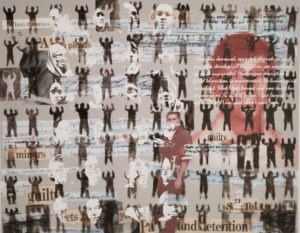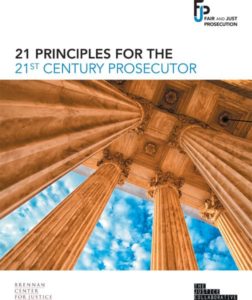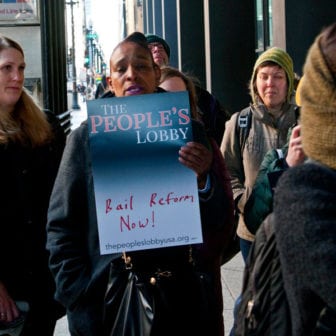
November 13th, 2017; St. Louis Today
In August, the Marshall Project reported that even while mounting an increasingly high-profile bail reform campaign, activists have been establishing bail funds to mitigate some of the damage done to poorer defendants pending those reforms. A study released in April documents the recent growth of this field and details some of its principles of practice and programming profiles.
Now, however, there appear to be intermediaries emerging that may help develop a more robust case for no-cash bail at the same time that they help with fundraising for and establishment of the funds.
As reports over the past week indicate, for instance, over the past two years Robin Steinberg has raised $30 million of a $50 million-dollar goal to seed local revolving bail funds for indigent defendants. Steinberg is the founder of the Bronx Freedom Fund, which has been bailing New Yorkers out for the past ten years and a former director of the Bronx Defenders, a free legal clinic.
The new national effort will be known as the Bail Project, and it plans to establish sites in St. Louis and Tulsa, Oklahoma early next year, then expanding to three dozen cities in the next five years. Thomas Harvey, executive director and co-founder of the nonprofit ArchCity Defenders law firm in St. Louis, is leaving to become The Bail Project’s national director of strategic relationships and advocacy. The Bail Project goal “is to free 160,000 people in five years, in part by reusing the money in a revolving fund that’s replenished when a case is concluded and the bail is returned to the group.”
Bail is only one of a number of elements of the criminal justice system that disadvantage poor people, forcing them into far more jail time, guilty pleas, and convictions than a more well-off person would experience, but it is an important one. According to Alan Feuer at the New York Times,
Sign up for our free newsletters
Subscribe to NPQ's newsletters to have our top stories delivered directly to your inbox.
By signing up, you agree to our privacy policy and terms of use, and to receive messages from NPQ and our partners.
Steinberg said that 96 percent of the people in the Bronx whose bail was paid by her local fund in the last 10 years returned to court for all of their appearances. If that statistic could be replicated nationwide, she added, the national fund could exist in perpetuity as the money given to help clients close their cases returns to the kitty for future use.
Ms. Steinberg also noted that remaining in jail without paying bail can affect the results of criminal proceedings. In New York, she said, more than 90 percent of those who cannot pay bail and stay locked up until their cases are concluded end up pleading guilty. But more than half of her clients in the Bronx who were freed on bail, she said, had their cases dismissed by prosecutors once they were released.
The donors to the new fund include some who are relatively high-profile, like music executive Jason Flom and the billionaire business magnate Richard Branson, and the chair of its board will be Michael Novogratz, a longtime hedge fund manager who said last week that he decided to take part in the project after finding out that almost 450,000 people are incarcerated at any one time in this country without having yet been convicted of a crime. Keeping people in jail while awaiting trial is also dangerous. The Bail Project says, “41 percent of sexual victimization happens in the first three days after an arrest and almost half of suicides and other deaths in jail happen in the first five days.” “It leaves you outraged,” Novogratz said. “Even with $50 or $60 million, we’re only going to put a dent in things and hopefully change attitudes about cash bail. It’s a monster problem.”
Harvey adds, that once people realize that citizens are sitting in jail before being convicted of anything, “and a judge says ‘you can go home … if you have $1,000,’ … most people grasp that that’s a fundamentally unfair thing.”
The project is also designed to include research on the socioeconomic costs of pretrial detention.
But that new project is clearly the only one occupying this intermediary space. The Open Philanthropy Project recently awarded a grant of over $400,000 to the Brooklyn Community Bail Fund for its work on the National Bail Fund Network. The Bail Fund is credited with helping six local funds get their feet on the ground over the past year.
Still all, at least for now, say the intention is to eliminate the need for their fund work by eliminating cash bail.—Ruth McCambridge













